Filter by

The Inexorable Evolution of Financialisation
Domna Michailidou addresses the questions above through exploring the inexorable evolution of financialisation into financial crisis through the examination of three middle-income countries: Mexico, Brazil and South Korea. Concentrating on emerging economies, and especially choosing three very different economies that all experienced financial crises in the 1990s, this book explores what lesson…
- Edition
- -
- ISBN/ISSN
- 978-1-137-55364-5
- Collation
- XV, 200
- Series Title
- -
- Call Number
- -
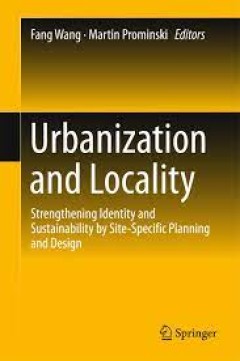
Urbanization and Locality Strengthening Identity and Sustainability by Site-…
Based on a discussion of conflicts in the urbanization process, this book provides theoretical and practical solutions for the preservation and development of urban localities. On the basis of informative case studies, it reveals the similarities and unique aspects of urbanization in Germany and China. The process of urban growth and the future trend of locality and urbanization are also examin…
- Edition
- -
- ISBN/ISSN
- 978-3-662-48494-4
- Collation
- XX, 384
- Series Title
- -
- Call Number
- -
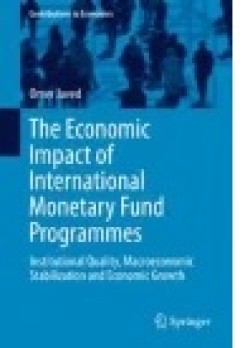
The Economic Impact of International Monetary Fund Programmes
This book investigates the impact of International Monetary Fund (IMF) programmes on macroeconomic instability and economic growth in recipient countries. Employing the New Institutional Economics approach as an analytical framework, it identifies the determinants of economic and political institutional quality by taking into account a broad variety of indicators such as parliamentary forms of …
- Edition
- -
- ISBN/ISSN
- 978-3-319-29178-9
- Collation
- XXI, 125
- Series Title
- Contributions to Economics
- Call Number
- -
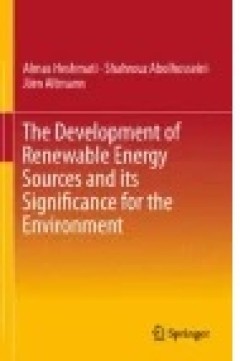
The Development of Renewable Energy Sources and its Significance for the Envi…
This book analyzes the effects of power generated by renewable energy sources, renewable energy production technologies, energy efficiency, and market regulation of carbon emissions. It elaborates on how these parameters have direct and indirect effects on carbon emission reduction, such as the results of an environmental tax that could directly reduce carbon emissions by decreasing fossil fuel…
- Edition
- -
- ISBN/ISSN
- 978-981-287-462-7
- Collation
- XVIII, 175
- Series Title
- -
- Call Number
- -
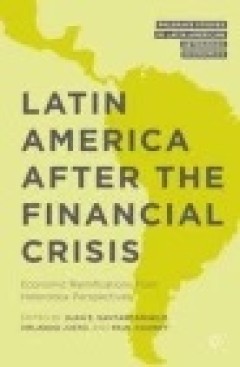
Latin America after the Financial Crisis: Economic Ramifications from Heterod…
Latin America was one of the regions least affected by the global financial crisis of 2008. During this time of widespread economic downfall, Latin America continued to achieve an annual growth rate of around 5%. Latin America after the Financial Crisis explains how the global financial crisis affected the region and why it was not as severe as other crises in the past. The collection covers da…
- Edition
- -
- ISBN/ISSN
- 978-1-137-48662-2
- Collation
- -
- Series Title
- -
- Call Number
- -
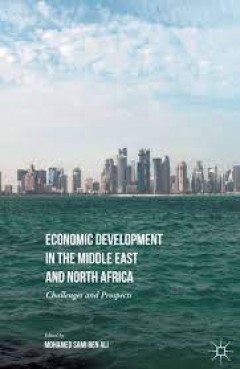
Economic Development in the Middle East and North Africa
Using cases on individual countries, Economic Development in the Middle East and North Africa offers diverse theoretical and empirical evidence on a variety of issues facing policymakers, investors, and other stakeholders in the region.
- Edition
- 1
- ISBN/ISSN
- 978-1-349-55918-3
- Collation
- -
- Series Title
- -
- Call Number
- XVIII, 227
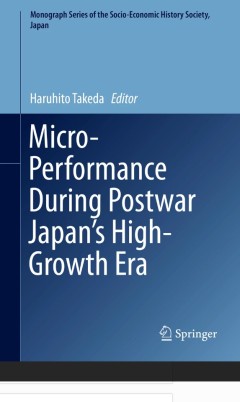
Micro-Performance During Postwar Japan’s High-Growth Era
The aim of this book is to analyze Japan's high-growth economy, in particular to clarify the kinds of changes in people’s lives that were generated by high growth. The present volume focuses not on the macro-economic mechanisms that expanded the scale of the economy, but on the micro-economic changes that were effected in everyday life. The emergence of a mass consumption society as a result …
- Edition
- 1
- ISBN/ISSN
- 978-981-10-0708-8
- Collation
- XII, 160
- Series Title
- Monograph Series of the Socio-Economic History Society, Japan
- Call Number
- -

Micro-Performance During Postwar Japan’s High-Growth Era
The aim of this book is to analyze Japan's high-growth economy, in particular to clarify the kinds of changes in people’s lives that were generated by high growth. The present volume focuses not on the macro-economic mechanisms that expanded the scale of the economy, but on the micro-economic changes that were effected in everyday life. The emergence of a mass consumption society as a result …
- Edition
- 1
- ISBN/ISSN
- 978-981-10-0708-8
- Collation
- XII, 160
- Series Title
- Monograph Series of the Socio-Economic History Society, Japan
- Call Number
- -
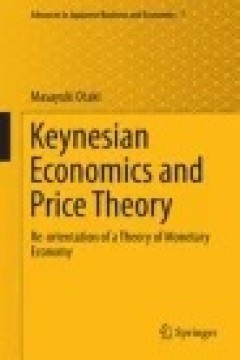
Keynesian Economics and Price Theory: Re-orientation of a Theory of Monetary …
This book reconstructs Keynesian macroeconomics so that it is compatible with the neoclassical dynamic microeconomic theory. This theory adopts three postulates: rational expectations, perfect price flexibility, and exclusion of the money in utility function (MIU). Based on the new theoretical finding that the Lucas model (1972) contains multiple equilibria, the author unifies Keynesian and mon…
- Edition
- -
- ISBN/ISSN
- 978-4-431-55345-8
- Collation
- -
- Series Title
- -
- Call Number
- -
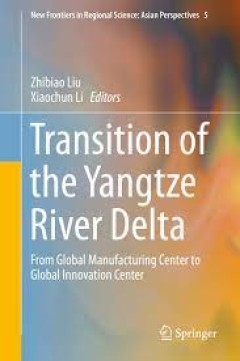
Transition of the Yangtze River Delta
This is the first English book that presents a professional analysis of the recent dynamic movement of the Chinese economy by focusing on the Yangtze River Delta region, which is the main engine of the Chinese economy. The impact of the international financial crisis on China’s economic development requires a change from the first wave of economic globalization oriented toward exports to the …
- Edition
- 1
- ISBN/ISSN
- 978-4-431-55178-2
- Collation
- X, 241
- Series Title
- New Frontiers in Regional Science: Asian Perspectives
- Call Number
- -
 Computer Science, Information & General Works
Computer Science, Information & General Works  Philosophy & Psychology
Philosophy & Psychology  Religion
Religion  Social Sciences
Social Sciences  Language
Language  Pure Science
Pure Science  Applied Sciences
Applied Sciences  Art & Recreation
Art & Recreation  Literature
Literature  History & Geography
History & Geography